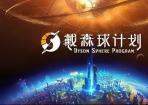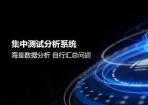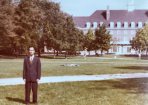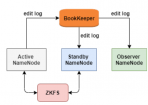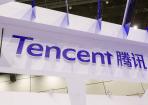IT之家12月1日消息 比尔盖茨今天发文表示,二十五年前,我出版了我的第一本书《未来之路》。当时,人们想知道数字技术的发展方向,以及它将如何影响我们的生活。而我则想分享我的想法——还有我的热忱。我还饶有兴趣地对计算机领域(尤其是互联网)未来几十年的突破做了一些预测。IT之家获悉,比尔盖茨称,在第一本书里做出了一些正确和错误的预测。
比尔盖茨表示,明年二月,我将发行另一本书,主题是气候变化。在书上架之前,我觉得回顾一下《未来之路》并看看我预测的结果如何会很有意思。
下面是文章内容:
我在第一本书里做出的正确和错误的预测

Twenty-five years ago, I published my first book, The Road Ahead. At the time, people were wondering where digital technology was headed and how it would affect our lives, and I wanted to share my thoughts—and my enthusiasm. I also had fun making some predictions about breakthroughs in computing, and especially the Internet, that were coming in the next couple of decades.
二十五年前,我出版了我的第一本书《未来之路》。当时,人们想知道数字技术的发展方向,以及它将如何影响我们的生活。而我则想分享我的想法——还有我的热忱。我还饶有兴趣地对计算机领域(尤其是互联网)未来几十年的突破做了一些预测。
Next February, I’ll release another book, this one about climate change. Before it hits the shelves, I thought it would be fun to look back at The Road Ahead and see how things turned out.
明年二月,我将发行另一本书,主题是气候变化。在书上架之前,我觉得回顾一下《未来之路》并看看我预测的结果如何会很有意思。
As I wrote in The Road Ahead, we tend to overestimate the changes that will happen in the short term and underestimate the ones that will happen over the long term. That is certainly my experience with the book itself. I was too optimistic about some things, but other things happened even faster or more dramatically than I imagined.
正如我在《未来之路》中所写,我们倾向于高估短期内将要发生的变化,而低估长期内将要发生的变化。这无疑是我从这本书中得到的经验。我对一些事情过于乐观,而另一些事情又比我想象中发生得更快或更激烈。
These days, it’s easy to forget just how much the Internet has transformed society. When The Road Ahead came out, people were still navigating with paper maps. They listened to music on CDs. Photos were developed in labs. If you needed a gift idea, you asked a friend (in person or over the phone). Today you can do every one of these things much more easily—and in most cases at a much lower cost too—using digital tools.
如今,人们很容易忘记互联网给我们的社会带来了多大的改变。当《未来之路》问世时,人们还在使用纸质地图导航。他们用 CD 听音乐。照片是在暗室中冲洗的。如果你需要一个送礼物的点子,你可以寻求朋友的建议(面对面或通过电话)。如今,你可以使用数字工具更轻松地完成所有这些操作,其成本在大多数情况下也会更低。
That’s all covered in the book (I was thinking and learning about these things obsessively back then). For instance, there’s a chapter on video on demand and computers that will fit in your pocket.
所有这些在这本书里都有涉及(那时候我一直着魔般地去思考和学习这些东西)。例如,有一章介绍了视频点播和小到能放到你口袋里的电脑。
One thing I was probably too optimistic about is the rise of digital agents. It is true that we have Cortana, Siri, and Alexa, but working with them is still far from the rich experience I had in mind in 1995. They don’t yet “learn about your requirements and preferences in much the way that a human assistant does,” as I wrote at the time. We’re just at the beginning of what agents will eventually be capable of.
对于有件事我也许过分乐观了,那就是数字助手的兴起。的确,我们有 Cortana、Siri 和 Alexa,但它们使用起来距离我在 1995 年想象到的丰富体验还相距甚远。它们还不能做到我所写的 “像人类助手那样了解你的要求和偏好”。从数字助手最终将具备的能力来看,我们尚处于初级阶段。
Another idea that’s central to The Road Ahead—that technology would allow unprecedented social networking—has pretty much come to pass. I am surprised, though, by the way social networks are both bringing us together and contributing to a more polarized atmosphere. I didn’t anticipate how much people would choose to filter out different perspectives and harden their own views.
《未来之路》中的另一个核心想法——支持前所未有的社交网络的技术——现在已基本成为了现实。可令我感到惊讶的是,社交网络既使我们连接在一起,又促成了一个更加分化的氛围。我没想到有那么多人会选择过滤掉与自己不同的观点,并更加坚持自己的观点。
One thing I wrote about that hasn’t happened yet—but I still think will happen—is the way the Internet will affect the structure of our cities. Today the cost of living in a dense downtown, like Seattle’s, is so high that many workers (including teachers, police officers, and baristas) can’t afford to live there. Even high earners spend a disproportionate percentage of their income on rent. As a result, some cities are arguably too successful, and others are not successful enough. It’s a real problem for our country.
我写的另一件尚未发生的事——但我仍然认为会发生——是互联网将影响我们城市的结构。如今,在人口密集的市中心(像西雅图闹市区)生活的成本是如此之高,以至于许多工人(包括教师、警察和咖啡师)无法负担在那里生活。即使是高收入者,也要将其收入的很大一部分用于支付房租。因此,可以说有些城市过于成功,而另一些城市则不够成功。对于我们国家来说,这是一个真正的问题。
But as digital technology makes it easier to work at home, then you can commute less often. That, in turn, makes it more attractive to live farther away from the office, where you can afford a bigger house than in the city center. It also reduces the number of cars on the road at any given time. Over time, these shifts would mean major changes in the ways our cities work and are built.
但随着数字技术使在家工作更加容易,你可以减少通勤。这会让住在离办公室更远的地方更具吸引力,在那里你可以负担得起比在市中心更大的房子。这也减少了特定时间在道路上的汽车数量。随着时间的推移,这些转变将意味着我们城市的工作和构造方式都会发生重大改变。
We’re starting to see some of these effects come into play now, as office workers stay home because of COVID-19. Microsoft recently announced a policy recognizing that doing some work from home (for less than 50 percent of the time) will be standard even after the pandemic is over and their offices open back up. I think this trend will accelerate in the coming years.
当上班族因为新冠肺炎疫情而留在家中,我们正看到这其中的一些影响开始起作用。微软最近宣布了一项政策,认可即使在大流行结束并且办公室重新开放之后,员工在家办公(不超过百分之五十的时间)也将符合规定。我认为这种趋势将在未来几年中加速发展。
The Road Ahead has a lot in common with my new book, How to Avoid a Climate Disaster. Both are about how technology and innovation can help solve important problems. Both share glimpses into the cutting-edge technology I get to learn about.
《未来之路》与我的新书《如何避免一场气候灾难》有很多共同点。两者都谈论了技术和创新如何帮助解决重要的问题,都分享了我学习到的对于尖端技术见解。
One thing is different: The stakes are higher with climate change. As passionate as I am about software, the effort to avoid a climate disaster has. Failing to get this right will have bad consequences for humanity. But you can also see the glass as half full. There are huge opportunities to solve this problem, eliminate our greenhouse gas emissions, and create new industries that make clean energy available and affordable for everyone—including people in the world’s poorest countries.
不同的一点在于:气候变化的风险更大。如同我对软件抱有的热情一样,我对避免一场气候灾难的努力也充满热情。做不好这件事将给人类带来不好的后果。但你也可以认为八字已有一撇。我们拥有巨大的机遇来解决这一问题,消除我们的温室气体排放,以及建立让所有人(包括生活在最贫穷国家的人们)都能用得上和用得起清洁能源的新行业。
I’m excited to get the new book out there and continue the conversation about how to keep the planet livable for everyone.
我很期待发布这本新书,以及继续探讨如何保持地球适宜所有人居住。


